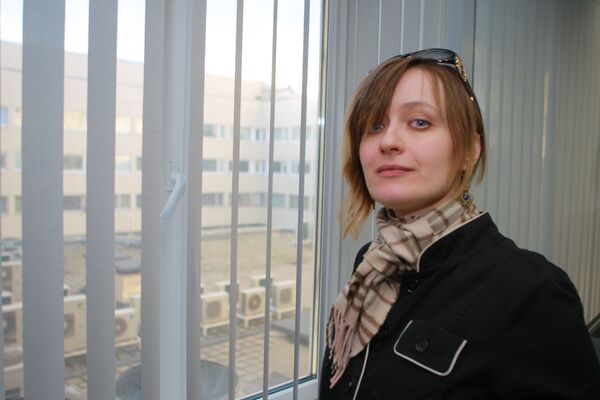Perhaps one of the most annoying ways in which the December opposition protests in Russia are being mischaracterized has to do with with “trends,” i.e. going out into the streets is “trendy” now, people are doing it all over the world, there is nothing profound going on here! It’s an exercise akin to buying a new pair of shoes you read about in a magazine!
In the last two decades, we have grown accustomed to the fact that only extremely disenfranchised people in Russia would protest: it’s all about senile pensioners who miss Stalin! It’s young criminals who don’t have decent authority figures and have taken to nationalism as the result!
When the middle class is taking to the streets, first there is surprise. Julia Ioffe characterized it well in an article for Foreign Policy, when she quoted young United Russia deputy Robert Shlegel on the subject:
“[Robert] recalled a conversation with a friend who said he planned on going to Saturday's demonstration. ‘I said to him, ‘What is the problem? You have a job, you have an apartment, you have a car. What else do you need?’ Shlegel recounted.”
After the shock wears off, defensiveness sets in. This is dishonest! It’s about Twitter! It’s about Facebook! It’s about hanging out with your friends and having a good time!
A peaceful protest can, in fact, amount to a good time and social networking allows for a certain “commodification” of political sentiment, if you will. Photoshopping an avatar on Facebook to include a white ribbon as a symbol of fair elections is, in many ways, a kind of fashion statement but it’s a fashion statement that is traditional for Russia. Has everyone forgotten how the communists co-opted the color red?
Political and social movements have their symbols. And as more and more Russians continue to get online, thereby easing communication, said symbols carry more and more power.
In fact, the real issue with characterizing the December protests as a kind of fad has to do with a kind of resentment. Where were these people before? How come they’re coming out now? Are they bored? Are they being paid off? Has the global economic crisis made enough of a dent in their class privilege that they would suddenly become political?
These are all fair questions to ask in a place like Russia - and they are all part of a what a healthy, diverse political discussion should look like. What I object to is the idea that a protest movement should be written off because it appears to be “too attractive” and “too hip.” I think this belies a dangerous attitude, an idea that there are the “deserving poor,” who have a right to demand something of the government - and be summarily ignored, by the way - and then there is everyone else, who ought to shut up and look at funny pictures of cats on the internet, as opposed to utilizing the internet to bring back the notion of public politics.
The internet is a big place. It can handle pictures of cats AND calls to action. Yes, even in Russia.
The views expressed in this article are the author's and do not necessarily represent those of RIA Novosti.
Trendswatcher: The way of the gun
Trendswatcher: Buying into the car craze - for sanity’s sake
Trendswatcher: A nice day for a ZAGS wedding
Trendwatching in Russia is an extreme sport: if you’re not dodging champagne corks at weddings, you’re busy avoiding getting trampled by spike heels on public transportation. Thankfully, due to an amazing combination of masochism and bravado, I will do it for you while you read all about it from the safety of your living room.
Natalia Antonova is the deputy editor of The Moscow News. She also works as a playwright – her work has been featured at the Lyubimovka Festival in Moscow and Gogolfest in Kiev, Ukraine. She was born in Ukraine, but spent most of her life in the United States. She graduated from Duke University, where she majored in English and Slavic Literature. Before coming to Moscow, she worked in Dubai, UAE and Amman, Jordan. Her writing has been featured in The Guardian, Foreign Policy, Russia Profile, AlterNet, et al.
*

